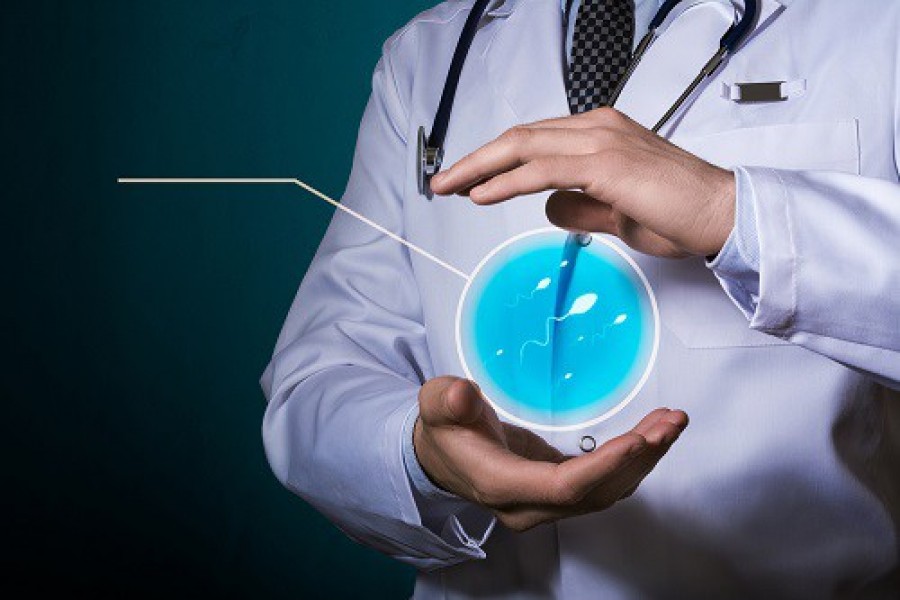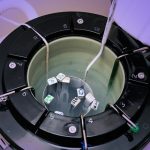Donor Conception Donor Eggs and Sperm

Although conception is part of the biological process of humans, having a baby isn’t always black and white.
Thankfully, with the assistance of science and technology, more and more people can achieve their fertility goals when troubles arise.
There are reasons for infertility, including genetic, health, or lifestyle factors.
Many women who try to have a baby over the of 35 use assisted reproductive technologies, such as Intra Vitro Fertilisation (IVF) or Intrauterine Cytoplasmic Sperm Injection (ICSI).
These technologies are also viable options for women with health concerns such as polycystic ovarian syndrome (PCOS) or endometritis.
They are also available for same-sex couples and single people.
In some cases, a donor egg or sperm may be required for the conception process. This is often the case for lesbian women couples requiring a sperm donation and gay male couples who need a donated egg for surrogacy.
Donor conception can also be called upon when a male has a significantly low sperm count or there are irregularities or damage with the female’s ovulation.
Is donor conception right for me?
Infertility is a big issue that affects 1 in 6 Australian couples.
It can cause a lot of emotional stress and upset.
After years of fertility tests and treatments, couples or women can feel a sense of loss that they are unable to conceive.
It can be hard to wrap your head around the idea of using someone else’s genetic material to create a child. This is the dilemma that donor conception poses to those considering it.
There are also many things to consider about if you will tell the child they were donor conceived or not mention it.
For couples, communication is highly important when deciding if donor conception is right.
For single women, having a close confidante such as a friend or family member, or seeking counselling, is important in the process.
Donor conception is not something that should be rushed into, rather it needs a lot of mental processing and emotional understanding before choosing this avenue.
How to choose a donor?
For some people, they choose a donor who is a friend or family member.There are exceptions to this, such as someone who is a direct relative.
Donors over the age of 50 are discouraged as their egg or sperm may not be of high enough quality. It is also important for thorough medical checks to take place in case of poor medical history.
There is also a process called de-identified donors.
These are donors who voluntarily donate their egg and sperm to a bank. Their identify remains anonymous although in some cases it can be revealed once the child reaches 18 years of age.
Couples using a donor go onto a waiting list.
Once they are at the top of the waiting list, they have access to a database with the currently available donors.
Most couples choose a donor who has a physical description similar to their own so that their child doesn’t feel exclusively different growing up.
Upon selecting a donor, you are able to access some important information such as:
- Physical appearance such as height and weight
- Ethnic background
- Number of past children (if any) and their gender
- A goodwill message to their potential child (in some cases)
More about sperm donation
Sperm donations are needed to provide single women, lesbian couples, or heterosexual couples with the chance to conceive.
For heterosexual couples, sperm donation is necessary if the male of the couple has a low sperm count or carries a risk of a genetic disease.
Often male infertility can be rectified using ICSI and other technologies, so sperm donation is given priority to other instances.
For health reasons, donor sperm is not available to women past their natural menopause age. It can be used by women over 45 who are part of a donor egg process.
In Australia, sperm donors need to be aged between 18-45 and have permanent residency for follow ups.
It is important that donors are genetically healthy and free from hereditary diseases. Men who test positive to HIV, Hepatitis B or C, and HTLV 1 and 2 cannot donate.
If the sperm donor is married or in a de facto relationship, their partner must consent.
More about egg donation
Donor eggs are often needed for women who are unable to use their own eggs.
This can happen as a result of early onset menopause, a risk of passing on a genetic disease, if the ovaries have been adversely affected by chemotherapy or other treatments, and if IVF cycles have failed due to poor egg quality.
Donor eggs are also used by male same-sex couples if they choose the surrogacy process to start a family.
Egg donors are ideally healthy women aged between 23-33. Donors must be prepared to discuss their medical and genetic history as well as their physical features and lifestyle.
Donors have to pass a blood test and medical screening before proceeding.
Information on embryo donation
Another lesser known source of donor conception is embryo donation.
Often people who have gone through IVF or other assisted reproductive technologies freeze their embryos. Once they have a successful family, they donate their embryos to other couples struggling to conceive.
Some people choose to donate their embryos from an ethical standpoint as it can be perceived to be better to donate them rather than dispose of them.
It can also be driven by a sense of compassion to help other couples going through difficulties conceiving.
Embryo donation can be arranged through personal connections or via organisations such as IVF Australia who have an embryo donor database. They can facilitate this on a confidential level as preferred by the clients.
Although the medical process of embryo donation is relatively simple, there are some emotional issues to consider. There is counselling available to both donors and recipients of embryo donation to guide through this process.
What impact does donor conception have on the child?
One of the biggest questions that come into play with donor conception is the emotional implications for the child.
In some situations, the child may grow up feeling a loss of identity, not know who their ‘biological’ mother or father is.
This isn’t the case for each instance of donor conception.
However, if a child does want to know the biological heritage, laws are changing regarding the anonymity.
In Victoria and New South Wales, laws have changed to make donor identity readily available once the child turns 18 years old.
It is a private matter of the family if this information is accessed!
There are many reasons that support telling a child they were donor conceived.
For instance, there is a risk they may find out from another source, such as a family member, and lose trust in their parents.
It can also be advantageous to know the donor in a case of medical issues and potential genetic diseases.
There is also a smaller risk that as an adult, the donor conceived child could start a sexual relationship with the donor.
Often parents feel it isn’t necessary to explain the donor conception process once their child is born and happy and healthy.
However, children are instinctively curious and naturally ask questions about where they came from.
As they grow up, with increased access to the internet and technology, there is a likely chance they will find out. Each circumstance is different, but open communication and sensitivity surrounding this often leads to the best outcome for all.
There are many help and support networks across Australia for both parents, couples, and singles going through donor conception. These networks also exist for children of donor conceived children.
How does the donor conception process start?
When fertility issues are realised by heterosexual couples or a same-sex couple or single woman embarks on a journey to conception, many options are discussed and presented.
There are many fertility clinics and doctors around Australia who can help guide people through the process.
To see a fertility specialist, a referral from a gynaecologist or general practitioner is often required.
After a range of fertility tests and assessments, the patient and the doctor may conclude to that donor conception is the best route.
Eligible couples will usually be referred to IVF or ICSI cycles before choosing donor conception. Throughout each step of the process, guidance and advice is given in terms of finances and emotional burdens by the fertility specialist.
There are also fertility counsellors available at many clinics or by referral for additional emotional support!
Most Viewed
-
5 Common Methods of Contraception
Last updated On by Percy Oad -
How to Cope with Male Infertility
Last updated On by Alina -
What is the Difference Between Primary and Secondary Infertility?
Last updated On by Madison -
How to start a child-free life after infertility
Last updated On by Jacinta








